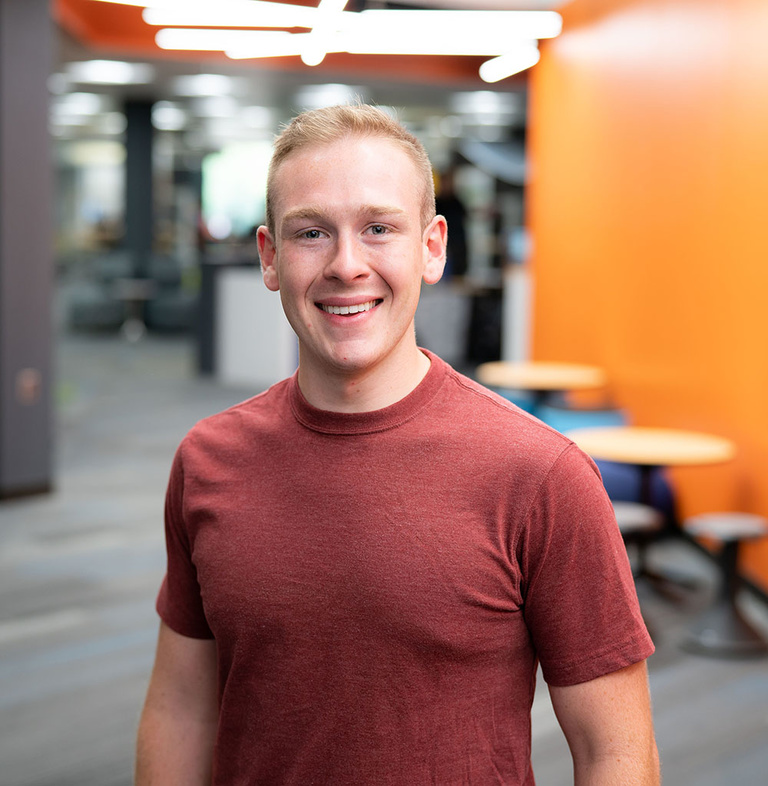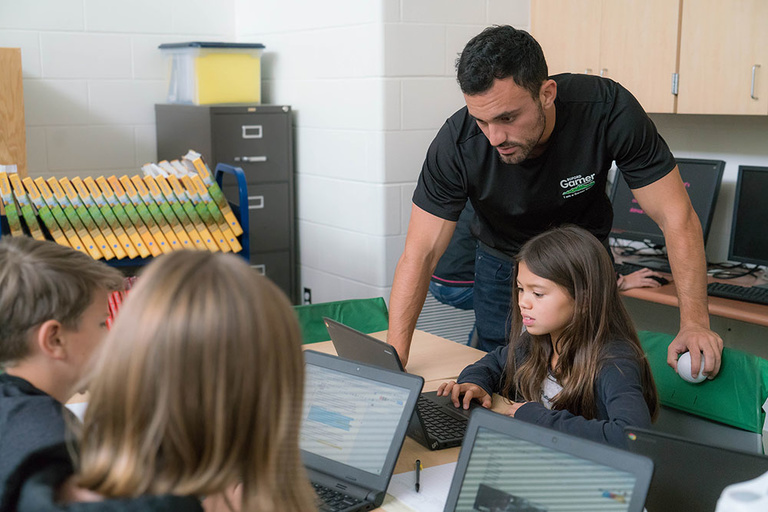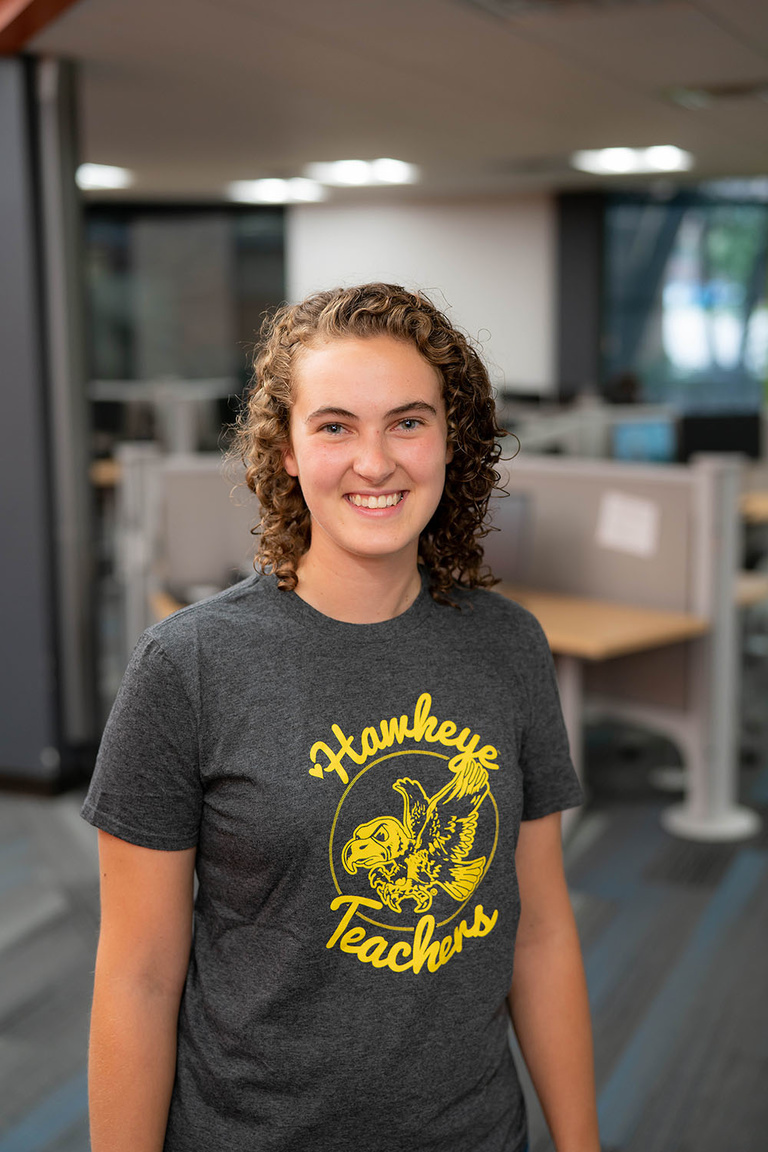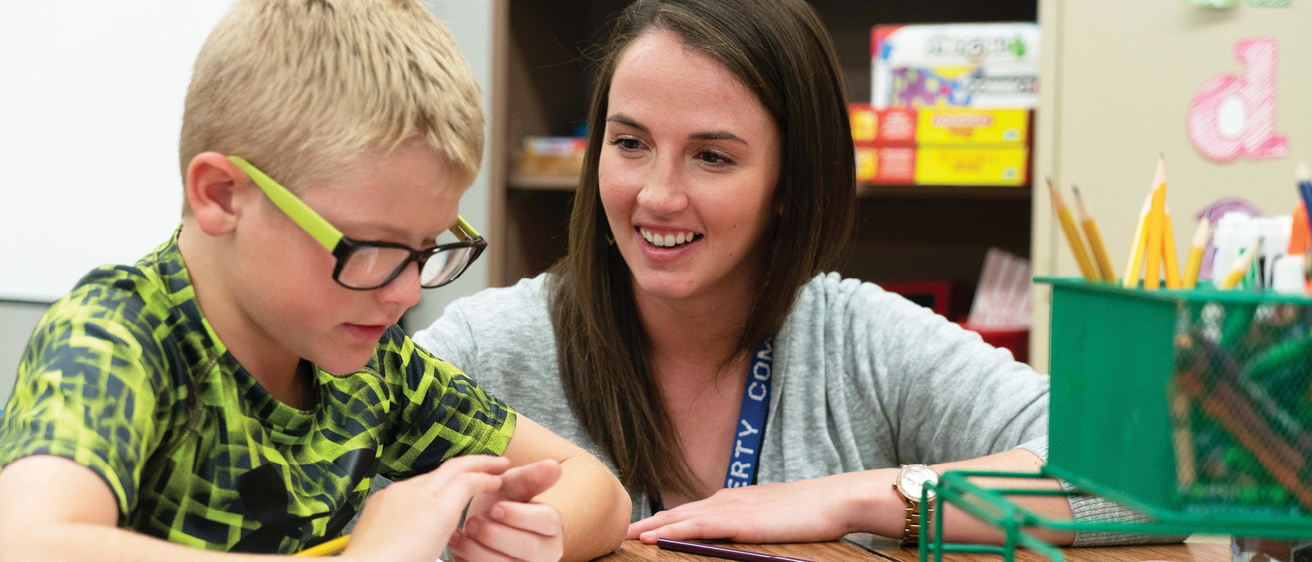Teaching is one of the most challenging but also most rewarding fields in the nation.
Kyle Kerger, a senior studying biology and working toward his Master of Arts in Teaching (MAT), from Ankeny, Iowa, knows this well.

Kerger is also a recipient of the nationally recognized Robert Noyce Teacher Scholarship, an award given to exceptional science, technology, and engineering students who plan on teaching science in high-need school districts after graduation.
Though he’s not yet a teacher, Kerger says his experiences in the Teacher Education Program and the Student Ambassador program are preparing him to excel in his teaching career.
“I’ve always known teaching was something I wanted to devote my life to,” Kerger says. “I enjoy developing potential in others and hope to help students learn more about the world and themselves.”
Teacher Education Program encourages strong classroom leadership skills
Several areas distinguish the Teacher Education Program, making it the top ranked in the state and one of the best in the nation.
All TEP students earn a Teacher Leader Certificate through the Baker Teacher Leader Center, which is one of few certificates embedded into the undergraduate curriculum nationwide.
Students receive specialized knowledge and experiences in the areas of assessment, technology, diversity and community engagement, including 40 hours of community-based volunteer experience.
A variety of practicum and field experiences help students orient themselves in the classroom and schools prior to student teaching.
Student teaching is the culmination of their undergraduate experience, with placements across the state and the world, ranging from Iowa and California to Australia, Spain, and New Zealand.
Taylor Scudder (BA’ 17) had a unique student teaching experience, spending eight weeks in Iowa and eight weeks in Spain.
Scudder taught fifth grade in Marion, Iowa, gaining experience with different types of learners, from talented and gifted students to students who needed accommodations. The experience also showed her the importance of building community in the classroom and allowed her to build a close relationship with the class that lasted beyond her placement.
Scudder taught diverse students when she was placed in a small private school in Avila, Spain, teaching English to PreK-6.
“I learned so much from this experience, but it really put me in the students' shoes when thinking about the teacher/student relationship,” says Scudder. “I now understand so much more what it is like for our English Language Learner (ELL) students in the United States and how anxious it can make you being in a place where you may not speak the language fluently, or even at all.” Scudder is now a seventh-grade literacy teacher at Northwest Junior High School in the Iowa City Community School District.
Creating culturally competent teacher leaders
Teacher Alex Hanna (BA ’13, MA ’18) wants to help his fourth-grade students at Garner Elementary School in North Liberty, Iowa, understand

what it is like for families who are separated at the U.S.-Mexico border. He is developing a lesson sequence to increase student understanding, empathy, and insight thanks to the knowledge he is gaining in a new Master of Arts in Teaching, Leadership, and Cultural Competency (MATLCC).
The MATLCC program offers a wide variety of courses including classes on diversity in schools, gifted students, STEM, global education, LGBTQ issues, cultural competency, and technology.
This is critical since classrooms across the state and nation are increasingly comprised of a diverse student population, whether in rural Iowa or urban communities, according to Will Coghill-Behrends, director of projects and partnerships with the Baker Teacher Leader Center.
Hanna is one of 60 students in the first cohort in a program that is nationally unique, and one of the first of its kind focusing on cultural competency.
“Cultural competency is something every human being needs an education in. In a world that is as diverse as ever before, cultural competency offers the lens through which everyone needs to view one another,” says Hanna. “This directly applies to education, because, as teachers, our students come from a variety of backgrounds, of which we need to be not only cognizant, but sensitive, respectful, and celebratory.”
Hannah Boyd (BA ’14/MA ‘18), a fourth-grade teacher at West Liberty Elementary School, says the MATLCC program has made her a better teacher.
“I have learned things that will help me be more cognizant of my students’ backgrounds, be an active leader in my school community, and has given me ways to continue to grow as a teacher,” says Boyd.
The program, launched in 2017, attracts practicing teachers from across the state and nation. Students in the program hail from 28 different states, including Iowa, Georgia, Washington, and New York.
“School administrators tell us they need teachers who can meet the students as they are, who they are, and where they are in their schools and classrooms,” says Coghill-Behrends. “We need culturally competent teachers capable of teaching diverse students. We need teachers who can empower students to see agency in their own lives.”
Student Ambassadors engage with communities

Rebekah Stelzle, of Omaha, Nebraska, is a junior studying Elementary Education, who serves as a student ambassador.
“I wanted to become an ambassador so I could use my strengths and passion to help others and the community that I love so much,” says Stelzle. “I love getting to talk with prospective students and their families, inspire future teachers, and work with the community that has helped me grow so much.”
Stelzle is one of 110 student ambassadors who serve as liaisons between the college and prospective students and local schools where they gain valuable leadership skills and experience in community and educational settings.
The student ambassador program has experienced considerable growth in the past year. Originally created in Fall 2015, the program has grown from 20 students to over 100 active participants who collectively completed more than 1,500 volunteer hours during the 2017-18 school year. The program now offers more than 70 volunteer opportunities per year to the Hawkeye Teacher candidates who participate in the group.
The program provides tutoring to elementary and high school students, a peer-to-peer perspective at recruitment events, and volunteer support at college and community events, including local school fairs and carnivals.
“As a result of their experiences in the program, candidates come to not only recognize the gravity of their role as educators, but also that as a result of their preparation, they are in a position to hit the ground running supporting student success in the schools and communities in which they are hired,” says Nancy Langguth, associate dean for Teacher Education and Student Services.
Read more from the 2017-18 College of Education Annual Report.
